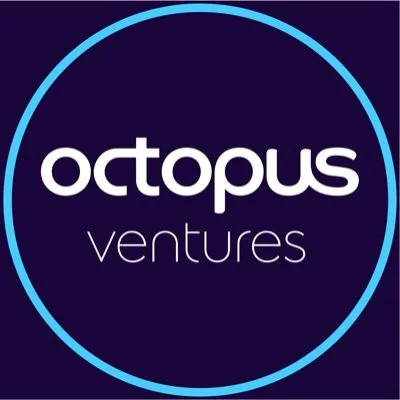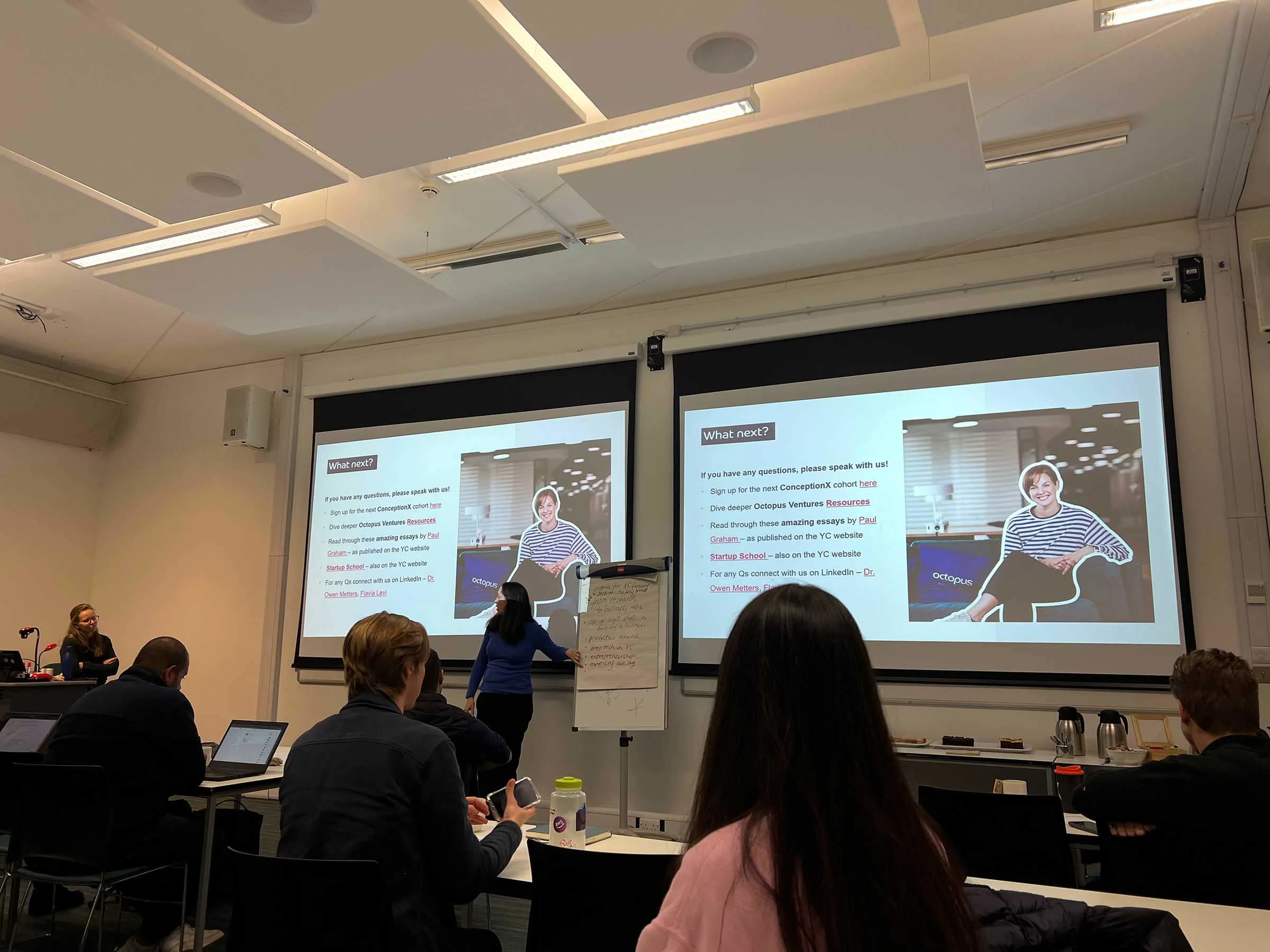Introduction to Venture Capital and how it intersects with academia/spin-outs.
Posted by: Edison Chamba Ortiz
Introduction
Embarking on a journey from academia to entrepreneurship can be daunting, especially for PhD students adapted to the rigour of research. In November, Octopus Ventures ran an introductory workshop on venture capital and deep tech investments for UoB PhD students. From the AAPS CDT, the attendees were Arash Pordel, Taif Aljebory, Edison Chamba, Issac Flower, Chan Wanasinghe, and Alexander Fritot. The workshop had two sections, the first one started with intros of attendees and research areas, and then the facilitators presented on the start-up process and the traditional Lean canvas model for business ideation. The second section was an interactive activity for teams to work on a funding proposal for real research projects and present it to the audience for feedback.

💡 Key Takeaways
1. Understanding Venture Capital Basics
Octopus Ventures took us on a journey through the fundamentals of spinouts and startups, briefly covering elements such as founders and cofounders, ideas/technology, business models, potential customers, and funding. For the last element, the facilitators explained the common types of funding which include grant funding (£50k-£2m); angel investors (£50k-£1m); institutional investors (£1m-£50m) and banks (£1-£10m). These funding sources have different terms and conditions, In the case of angel investors and institutional investors (such as Octopus Ventures), they typically buy between 10 to 20% of the existing business that is pursuing financial investment to grow or expand.
2. Case Studies
The workshop also included some case studies, Phlux Technologies was one of them. This is a University of Sheffield spinout that uses Antimony, a semi-metal element, to develop a unique, patented approach to infrared sensors to dramatically improve their performance in LIDAR (light detection and ranging) systems. The CEO Ben White has a PhD in Semiconductor materials and next-generation photodetectors. Understanding the entrepreneurial and funding process of these types of research projects turned into commercial products, brings light to the potential of current researchers' work to become real businesses.
3. Interactive Sessions and Networking
Engaging with professionals from Octopus Ventures and fellow PhD students from SAMBa and ART-AI fostered a sense of community. The workshop allowed everyone to know about some research projects that are being undertaken across different faculties and disciplines. The teams' activity helped the participants understand the proposed project more deeply and work on a business model that would suit the product/service (outcome of a research project) and convince the audience about the business potential to invest in it. The business ideas included an interface system to measure sleep quality and improve it, a system for electric vehicle charging demand, a new approach for video games digital design, and others.

Conclusion
Connecting Academic Research with Entrepreneurial Realities
The workshop served as a bridge between my academic background and the practicalities of entrepreneurship. As a PhD student, the transition from theoretical research to understanding the nuts and bolts of startup funding was both enlightening and challenging. My new understanding of venture capital has encouraged me to explore avenues where my research can translate into real-world impact. Whether it's contributing as an advisor, collaborating on innovative projects, or potentially founding a startup, the workshop has ignited a passion for actively shaping the future of technology and innovation.